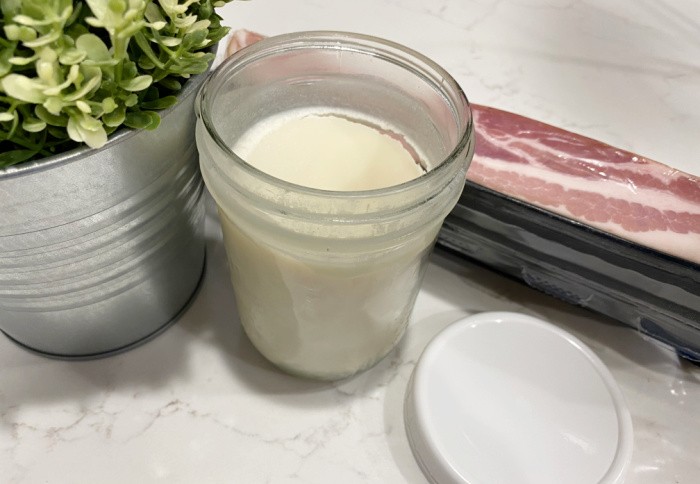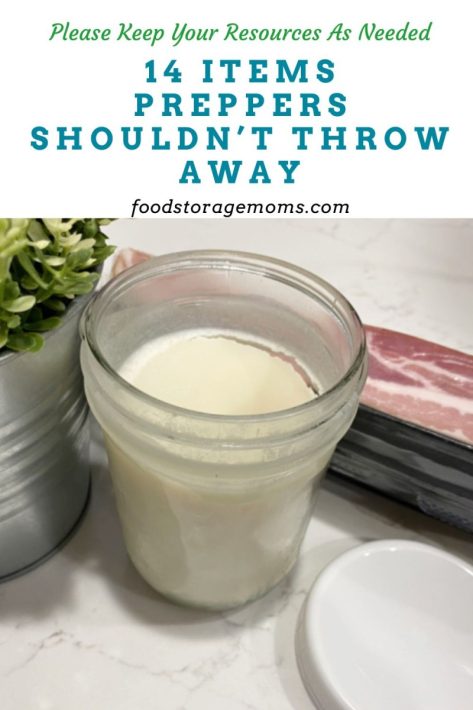
Every time we finish eating from a container or pull on a pair of blue jeans for the last time, our first instinct is to discard them. But if you consider yourself a prepper, that’s a habit worth breaking.
Even when something no longer serves its original purpose, it doesn’t mean it’s useless. With a bit of creativity and resourcefulness—a skill Native Americans mastered long ago—these everyday items can be repurposed into valuable tools for survival, storage, or trade.
Here are 14 items preppers should never throw away, along with innovative ways to reuse them.
Related Topic: 8 Must-Haves for Choosing the Perfect Bug Out Location

14 Items Preppers Shouldn’t Throw Away
When it comes to prepping and emergency preparedness, it’s easy to overlook the value of simple household items. Many of the things we toss without a second thought can actually serve multiple purposes in survival situations. Here are 14 everyday items preppers should never throw away—you’ll be surprised how useful they can be when times get tough.
1. Worn-Out Clothing
Your old, worn-out t-shirts can be used instead of paper towels or wash rags—whether you’re cleaning tools, doing dishes, or handling greasy repairs. Clothing that’s too small can also be stored for barter or trade in a crisis. Reuse towels, prepping supplies, DIY cut cleaning cloths, emergency bandages, or reusable wipes.
T-shirts become cleaning cloths, jeans make strong patches, and old jackets can be cut for insulation.
In case you missed it: Prepping Items You Can Find at Thrift Stores.
2. Newspapers.
Newspapers are a prepper’s best friend! They can be used as:
- Tinder to start fires
- Insulation for doors and windows during winter
- Mulch or compost in your garden to retain soil moisture
Before you recycle, think twice: paper has power.
3. Grocery Bags
Plastic grocery bags have endless uses. Protect your shoes in the rain, line small trash cans, or even braid them into rope. You can also repurpose them for waterproof storage. Reuse grocery bags for emergency water protection or prepping items.
Keep them for waterproofing, waste disposal, or even braiding into strong cordage.
Check out: 45 Ways to Reuse Plastic Grocery Bags
4. Coffee Cans or Metal Hangers
Don’t toss those empty coffee cans! Use them to:
- Store small tools or emergency supplies
- Protect your toilet paper from moisture
- Start seedlings or even bake bread in a pinch
- Bend into hooks, roasting sticks, or plant supports, handy in any survival situation
More ideas here: 15 Ways to Repurpose Coffee Cans
5. Glass Jars
Glass jars are great for storing liquids, dry goods, or small pantry items. Even spaghetti jars can double as reusable drinking glasses. Strong, durable, and endlessly reusable—glass is gold in a prepper pantry. Use them for water storage, mini greenhouses, or drip irrigation systems.
6. Baby Food Jars
Perfect for organizing nails, screws, bolts, or seeds. You can also make DIY candles in them for power outages. These small jars are compact and sturdy, making them ideal for small storage spaces.
7. Old Tires
Old tires can be repurposed as planters, playground material, or even outdoor furniture. Cut them into strips for weed barriers or fill them with soil for raised garden beds.
8. Plastic Bottles
Empty 2-liter and milk jugs can be reused to:
- Store short-term water
- Create drip irrigation systems for gardens
- Make a scoop or dustpan by cutting it in half
Note: Thin plastic jugs aren’t safe for long-term water storage; they can leak or crack. Use thicker detergent bottles for more durability.
9. Cardboard Boxes
Cardboard boxes are helpful for storage, organizing supplies, and moving. Flatten and stash them to save space. If you ever have to bug out, these boxes can help pack and transport essentials quickly.
10. Dryer Lint
Dryer lint makes excellent fire-starting material. Store it in a ziplock bag to keep it dry.
Safety tip: Avoid burning lint made from synthetic fabrics, such as polyester or nylon, which release toxic fumes.
11. Egg Cartons
Egg cartons are perfect for starting garden seedlings or creating DIY fire starters using lint, Vaseline, and cotton balls. Choose cardboard cartons; they’re biodegradable and safer for the environment. Reuse egg cartons for seed starters and eco-friendly crafts.
Use them for seedlings, fire starters, or organizing small supplies.
12. Wire Pieces
Small wire scraps can be used to secure fencing, tie garden plants to stakes, or make quick household repairs. Keep a small bundle in your emergency repair kit.
13. Pantyhose
Even with a run, pantyhose still have value! Use them to:
- Prevent blisters during long hikes
- Filter debris from water
- Create a makeshift tourniquet in a medical emergency
Lightweight and versatile, add them to your go-bag.
14. Bacon Grease
Don’t pour it out! Bacon grease adds rich flavor to meals, acts as a fire starter, and can be used for cooking, lubricating, or waterproofing.
Learn more here: 13 Ways to Use Bacon Grease
Frequently Asked Questions
1. Why should preppers avoid throwing things away?
Because in prepping, efficiency and resourcefulness matter. When you repurpose everyday items rather than discarding them, you reduce waste, save money, and build a stronger, more sustainable stockpile. This principle aligns with the “reduce, reuse, recycle” mindset often promoted in prepping. See more about waste reduction strategies in How to Reduce Waste as a Prepper.
2. What are some household items I can reuse for prepping?
Pretty much anything with potential, such as glass jars, plastic bottles, containers, old clothing, and tin cans. For example, glassware and mason jars are incredibly versatile in prepping. Read Creative Ways to Reuse Glassware for Prepping Purposes for specific ideas.
3. How can old clothing or denim be functional?
Old clothes can be cut into cleaning rags, used for insulation, turned into bandages, patches, or trade goods. The thicker fabrics, such as denim, are exceptionally durable and usable in many survival situations.
4. How about plastic bottles: Are they safe to reuse?
Yes, but with caution. Use plastics labeled with recycling codes 1, 2, 4, or 5, which are considered safer for reuse and less likely to leach chemicals. Be cautious with bottles that contain chemicals or have intense flavors. The article How to Use Plastic Bottles for Prepping offers more guidance.
5. Are there any items that should be thrown away for safety reasons?
Definitely, discard anything moldy, contaminated, structurally compromised, or chemically unsafe. Always inspect carefully; keeping something that’s dangerous is worse than throwing it away.
6. How can I store repurposed items without cluttering up my space?
Group and categorize: containers with containers, fabrics with fabrics, and so on. Label your bins. Use shelving or stackable systems. Keep frequently used repurposed items within reach. You may find ideas in the post 16 Hacks for Repurposing Old Household Items.
7. Can repurposing really help in emergencies?
Yes, in a crisis, resources are limited. Being able to reuse what you already have can mean the difference between solving a problem and being stuck. The creative reuse of everyday items has saved many in survival scenarios.
Final Word
Many of these everyday items have been tossed in the trash for years without a second thought. But a true prepper knows how to repurpose and reuse. Before throwing something away, ask yourself: Could this be useful later?
Every item you save adds another layer of security and self-reliance to your home.
What other items do you keep for prepping? Let’s share ideas in the comments! May God bless this world.
The post 14 Items Preppers Shouldn’t Throw Away appeared first on Food Storage Moms.
from Food Storage Moms
No comments:
Post a Comment